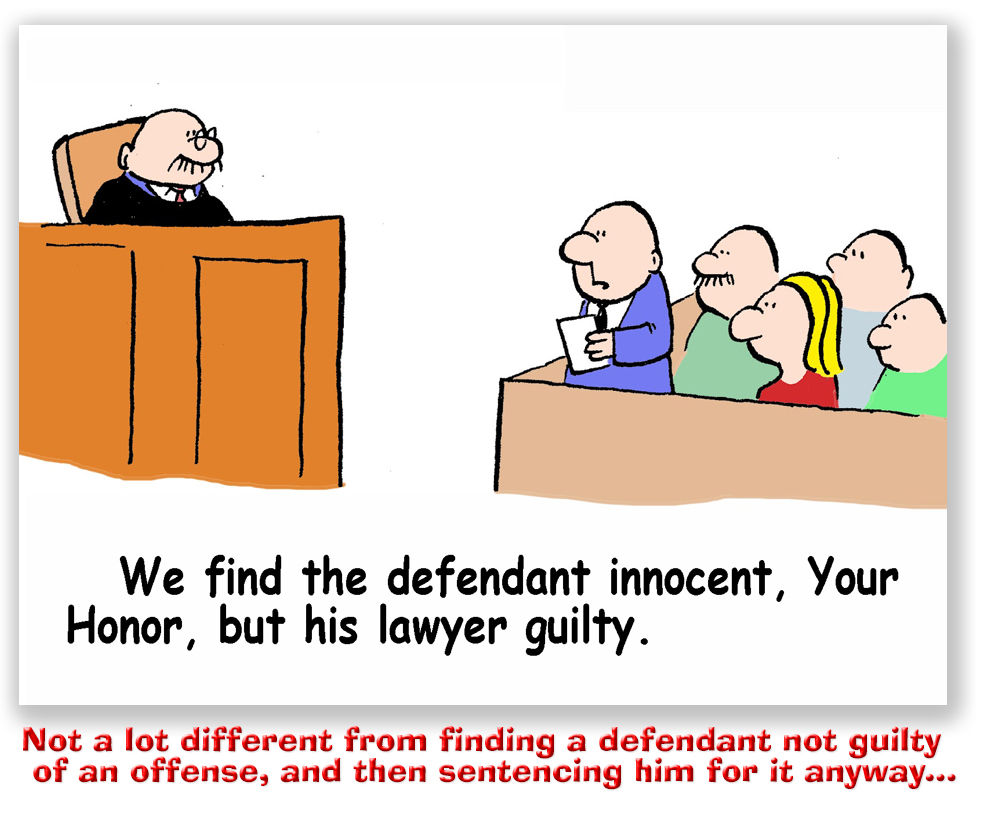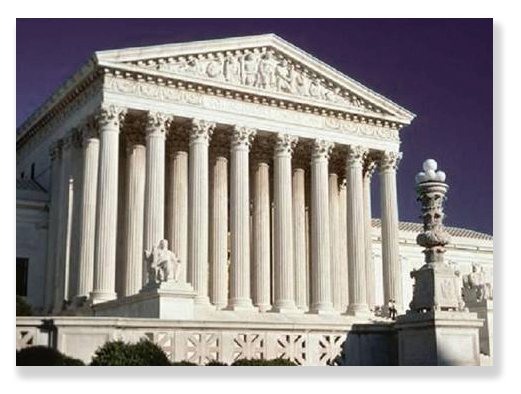We post news and comment on federal criminal justice issues, focused primarily on trial and post-conviction matters, legislative initiatives, and sentencing issues.

PUSH TO GET SCOTUS TO TAKE ‘ACQUITTED CONDUCT’ MAY BEAR FRUIT
A probable Supreme Court decision today on granting review to McClinton v. United States is gaining media notice.
McClinton examines sentencing for acquitted conduct, a judicial phenomenon described by the Associated Press as giving defendants “additional prison time for crimes that juries found they didn’t commit.”
Sentencing a defendant for what’s called “acquitted conduct” has gone on for years, based on United States v. Watts, a 1997 Supreme Court decision. There, a divided Court in a summary disposition held that use of acquitted conduct at sentencing does not offend the 5th Amendment Double Jeopardy Clause.
 Maybe not. “But lower courts,” petitioner McClinton complains in his request for SCOTUS review, “have long misinterpreted Watts to foreclose all constitutional challenges to the use of acquitted conduct at sentencing, including under the 5th Amendment’s Due Process Clause and the 6th Amendment’s right to trial by jury.”
Maybe not. “But lower courts,” petitioner McClinton complains in his request for SCOTUS review, “have long misinterpreted Watts to foreclose all constitutional challenges to the use of acquitted conduct at sentencing, including under the 5th Amendment’s Due Process Clause and the 6th Amendment’s right to trial by jury.”
Since Watts, the high court has rejected several petitions asking for review of the question of whether using acquitted conduct at sentencing is unconstitutional. Nine years ago, Justice Scalia – joined by Justices Thomas and Ginsburg – highlighted the need for the Supreme Court “to put an end to the unbroken string of cases disregarding the Sixth Amendment” by enhancing sentences based on acquitted conduct, proclaiming in a dissent to the denial of review in another case. Scalia bluntly wrote, “This has gone on long enough.”
Scalia and Ginsburg have since died, but two other justices, Gorsuch and Kavanaugh, voiced concerns about using acquitted conduct at sentencing while serving as appeals court judges. “Allowing judges to rely on acquitted or uncharged conduct to impose higher sentences than they otherwise would impose seems a dubious infringement of the rights to due process and to a jury trial,” Kavanaugh wrote in United States v. Bell, a 2015 D.C. Circuit case.
 With the addition of Justice Ketanji Jackson, a former public defender (who also served on the Sentencing Commission), to the Supreme Court, there now could be the 4th vote needed to take up the issue, according to Ohio State law professor Doug Berman, a sentencing law expert and author of one of the four briefs on file support McClinton’s bid for SCOTUS review.
With the addition of Justice Ketanji Jackson, a former public defender (who also served on the Sentencing Commission), to the Supreme Court, there now could be the 4th vote needed to take up the issue, according to Ohio State law professor Doug Berman, a sentencing law expert and author of one of the four briefs on file support McClinton’s bid for SCOTUS review.
The Senate Judiciary Committee approved the Prohibiting Punishment of Acquitted Conduct Act of 2021 (S.601) in June 2021, which would have stopped the use of such conduct in federal sentencing. The bill never was voted on by the full Senate, however, and died last Tuesday when the 117th Congress expired.
The McClinton petition for certiorari has some horsepower behind it, having collected six amicus briefs supporting review, including one from 17 retired federal judges who say that based on their combined 300 years “experience as Article III judges… [we] emphasize the unfairness of the sentence in this case. [McClinton’s] district court relied upon acquitted conduct to essentially quadruple the defendant’s sentencing range, and its decision reflects a more widespread problem in the criminal justice system.”
The Supreme Court will announce decisions made in today’s conference on Monday.
AP, Supreme Court asked to bar punishment for acquitted conduct (December 28, 2022)
McClinton v. United States, Case No. 21-1557 (petition for certiorari, filed June 10, 2022)
United States v. Bell, 808 F.3d 926 (D.C. Cir., 2015)
Jones v United States, 135 S.Ct. 8 (2014) (dissent from denial of certiorari)
S.601, Prohibiting Punishment of Acquitted Conduct Act of 2021 (117th Congress)
Sentencing Law and Policy, Fingers crossed that SCOTUS might review acquitted conduct sentencing enhancements (December 28, 2022)
– Thomas L. Root

